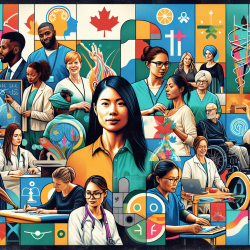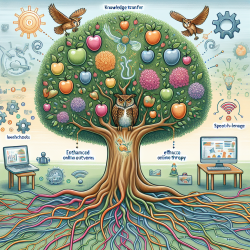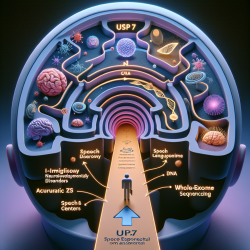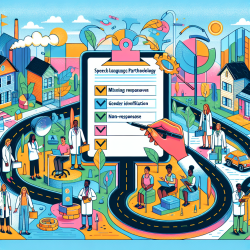Introduction
In the realm of global mental health research, practitioners are constantly seeking innovative strategies to improve outcomes for young people. The research article "Conducting global mental health research: lessons learned from Kenya" offers valuable insights that can be harnessed to enhance practitioner skills and encourage further research. This blog will explore key lessons from the study and their implications for practitioners in the field.
Key Lessons from the Research
1. Reducing Stigma with Strengths-Focused Interventions
One of the significant challenges in mental health interventions, especially in low- and middle-income countries (LMICs), is the stigma associated with mental health disorders. The study highlights the effectiveness of strengths-focused interventions in circumventing this stigma. By framing interventions around character strengths rather than psychopathology, practitioners can create a more welcoming environment for participants. This approach not only reduces stigma but also enhances the acceptability and enthusiasm for the intervention among students and school officials.
2. Expanding Access by Working in Schools
Schools provide a natural and scalable setting for mental health interventions. The research underscores the advantages of delivering interventions in schools, such as increased reach, cost-effectiveness, and the ability to integrate mental health lessons into the existing educational framework. Practitioners can leverage these benefits to design and implement school-based interventions that reach a broader audience and utilize available resources efficiently.
3. Generating Buy-In from Local Stakeholders
Securing support from local stakeholders is crucial for the success of any intervention. The study demonstrates effective strategies for engaging school officials, including aligning interventions with educational goals and being open to feedback and adaptation. Practitioners can apply these strategies to foster collaboration and ensure that interventions are well-received and supported by the community.
4. Adapting Interventions via Multicultural Collaboration
Multicultural collaboration is essential for adapting interventions to fit the cultural context of the target population. The research highlights the importance of involving local experts and community members in the adaptation process. By doing so, practitioners can ensure that interventions are culturally relevant and resonate with participants, thereby enhancing their effectiveness.
5. Applying Insights from LMICs to High-Income Countries (HICs)
The lessons learned from LMICs can be reverse-engineered to benefit individuals in HICs. The study illustrates how principles such as strengths-focused interventions and school-based delivery can be applied in different contexts to improve mental health outcomes. Practitioners in HICs can draw on these insights to enhance their interventions and address similar challenges in their settings.
Conclusion
The insights from the research article provide valuable guidance for practitioners seeking to improve mental health outcomes for young people. By implementing strengths-focused interventions, expanding access through schools, generating stakeholder buy-in, and adapting interventions through multicultural collaboration, practitioners can enhance the effectiveness and reach of their work. Furthermore, the potential for reverse-engineering insights from LMICs to HICs opens new avenues for innovation and cross-cultural learning.
To read the original research paper, please follow this link: Conducting global mental health research: lessons learned from Kenya.










